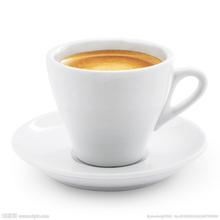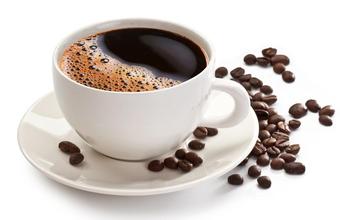Introduction to the characteristics of planting environment of El Salvador Himalayan coffee flavor description treatment
From 549 to 1763, El Salvador was the first capital of Brazil, witnessing the fusion of European, African and American cultures. As the slaves arrived in El Salvador in 1558 to work in sugar cane plantations, it also became the first slave market in the new world. The city has planned to retain many famous typical Renaissance buildings. The feature of the old city is bright, and high-quality gray is decorated with colorful houses.
El Salvador, the northeastern part of the Federative Republic of Brazil, is located on the east coast of the Gulf of Todos Santos in the Atlantic Ocean. It was the first city built by Portuguese colonialists in Brazil in 1549 and was the capital of Brazil until 1763.
El Salvador means "savior" in Portuguese. Most of the current population are black and black-and-white people. El Salvador is the capital of the Brazilian state of Bahia and the third largest city in Brazil. The city still retains the buildings of the colonial period, and the style of the ancient capital still exists today, and it has been declared as a World Cultural Heritage site by UNESCO.
El Salvador's coffee accounts for 40% of the country's exports, and it is usually picked in November, December and January-March of the following year. The export of raw beans lasts almost all year round. Coffee is produced in seven of the country's 14 provinces, with the largest number in the northwestern provinces of chalatenango and santa ana. El Salvador produces 100% Arabica coffee, 68% of which is bourbon, which usually grows at an altitude of 1062 Mel 1972 meters. On the other hand, El Salvador has a unique mountain, river and plateau, which provides a suitable environment for the growth of bourbon coffee. At the same time, El Salvador's suitable temperature, abundant precipitation and fertile soil are also indispensable natural conditions for breeding high-quality coffee beans. Salvadoran coffee, like other typical island beans, is well-balanced, soft and good in texture.
Central American countries generally distinguish quality grades by altitude, such as Costa Rica, Guatemala, Mexico, Honduras and other countries. Similarly, El Salvador is graded by altitude. At high altitudes, due to the cold climate and slow coffee growth, the density of raw beans will be higher, the hardness will be stronger, the unique acidity of Arabica will be better, and of course the better the quality will be. Therefore, the higher the altitude of coffee growth, the better the flavor, on the contrary, the lower the altitude, the higher the temperature, the faster the growth rate, the lower density, the lower hardness and the worse quality of raw beans.

Important Notice :
前街咖啡 FrontStreet Coffee has moved to new addredd:
FrontStreet Coffee Address: 315,Donghua East Road,GuangZhou
Tel:020 38364473
- Prev

Introduction to the characteristics of Panamanian Cupid Coffee Flavor description and Grinding degree treatment
The Panamanian flag was launched on November 3, 1904. The flag is rectangular and the ratio of length to width is 3:2. The flag consists of four rectangles of white, red and blue. White symbolizes peace; red and blue represent the former Panamanian Liberal Party and the Conservative Party respectively, and they are also symbols of the two parties' United struggle for the interests of the nation. The blue star on the white background on the upper left represents loyalty and integrity, and the red star on the white background on the lower right represents
- Next

Sunny Ye Jia Xue Fei Woka Coffee Flavor Description Grind Treatment Price Taste Introduction
Harfusa, Hama and Biloa are all washed with water, but a small amount of exclusive beans are deliberately sun-dried to enhance the charming fruity flavor and body. These mountain villages are foggy, spring all year round, cool but not hot in summer, rain but not damp in winter, and they have a unique regional flavor of citrus and flowers. Coffee trees are mostly grown by farmers.
Related
- Detailed explanation of Jadeite planting Land in Panamanian Jadeite Manor introduction to the grading system of Jadeite competitive bidding, Red bid, Green bid and Rose Summer
- Story of Coffee planting in Brenka region of Costa Rica Stonehenge Manor anaerobic heavy honey treatment of flavor mouth
- What's on the barrel of Blue Mountain Coffee beans?
- Can American coffee also pull flowers? How to use hot American style to pull out a good-looking pattern?
- Can you make a cold extract with coffee beans? What is the right proportion for cold-extracted coffee formula?
- Indonesian PWN Gold Mandrine Coffee Origin Features Flavor How to Chong? Mandolin coffee is American.
- A brief introduction to the flavor characteristics of Brazilian yellow bourbon coffee beans
- What is the effect of different water quality on the flavor of cold-extracted coffee? What kind of water is best for brewing coffee?
- Why do you think of Rose Summer whenever you mention Panamanian coffee?
- Introduction to the characteristics of authentic blue mountain coffee bean producing areas? What is the CIB Coffee Authority in Jamaica?

